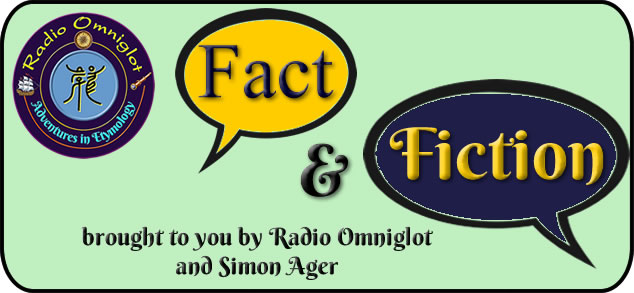Podcast: Play in new window | Download
In this Adventure in Etymology we investigate the origins of the word cardinal.
As an adjective, cardinal [ˈkɑː.dɪ.nəl / ˈkɑɹdɪnəl] can mean:
- Of fundamental importance, e.g. a cardinal rule.
- Of or relating to the cardinal directions (north, south, east and west).
- Describing a “natural” number used to indicate quantity (eg 1, 2, 3, 4, etc), as opposed to an ordinal number indicating relative position (1st, 2nd 3rd, etc).
- Having a bright red colour (from the colour of a Catholic cardinal’s cassock).
As an noun, cardinal can mean:
- One of the officials appointed by the pope in the Roman Catholic Church, ranking only below the pope, equal to the patriarchs, constituting the special college which elects the pope.
- Any of various species of New-World passerine songbird in the genus Cardinalis, so called because of their red plumage.
- A deep red colour, somewhat less vivid than scarlet, the traditional colour of a Catholic cardinal’s cassock.
It comes from Middle French cardinal ([Catholic] cardinal), from Latin cardinālis (pertaining to a door hinge, principal, chief, cardinal), from cardō (hinge, socket, turning point, critical moment of action), possibly from Ancient Greek κράδη (krádē, twig, spray, swing, crane in the drama) or from PIE *(s)kerd- (to move, sway, swing, jump) [source].
Words from the same roots include cardinal (important, paramount, cardinal) and charière (hinge, joint, turning point) in French, cardine (hinge, pivot, support, cornerstone) in Italian, and corddyn (pivot, hinge) and possibly cerdded (to walk) in Welsh [source].
Cardea, the Roman goddess of hinges and families, also got her name from the same roots [source]. She kept evil spirits from crossing the threshold of houses and protected the family and children inside More information about Cardea.
If you would like to support this podcast, you can make a donation via PayPal or Patreon, or contribute to Omniglot in other ways.
Radio Omniglot podcasts are brought to you in association with Blubrry Podcast Hosting, a great place to host your podcasts. Get your first month free with the promo code omniglot.
I also write about words, etymology and other language-related topics on the Omniglot Blog, and I explore etymological connections between Celtic languages on the Celtiadur blog.














